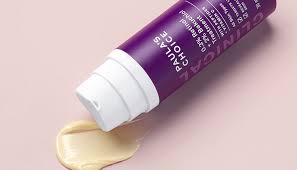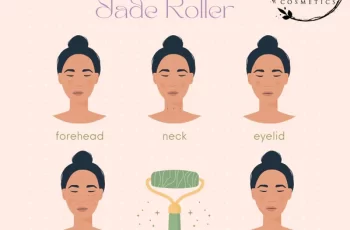
The Science of Bakuchiol in Skin Care Products
In recent years, the beauty and skincare industry has been abuzz with discussions about bakuchiol, a plant-derived compound used as a natural alternative to retinol. Originating from the seeds and leaves of the Psoralea corylifolia plant, bakuchiol has been used in traditional medicine across Asia for centuries. This blog delves into the science behind bakuchiol, exploring its benefits, potential side effects, hormonal implications, and its suitability for different skin types. To find your skin type, take our quiz by clicking the button below!
What is Bakuchiol?
Bakuchiol is a prenylated phenolic monoterpene known for being a gentler alternative to retinoids. It has gained attention for its ability to emulate the skin benefits of retinol, such as anti-aging, anti-acne, and pigmentation correction, without causing harsh side effects.
Benefits of Bakuchiol
Antiaging
Bakuchiol stimulates collagen production and aids in exfoliation, thus reducing the appearance of fine lines and wrinkles. It helps improve skin elasticity and firmness, contributing to a more youthful appearance.
Bakuchiol also acts as a powerful antioxidant. It helps protect the skin from free radical damage induced by UV rays and pollution, which can accelerate the aging process and lead to hyperpigmentation. Clinical trials have demonstrated that regular use of bakuchiol reduces signs of aging.
Acne
Its anti-inflammatory and antibacterial properties make bakuchiol effective against acne. It helps reduce acne breakouts by controlling bacteria and reducing inflammation. Killing the micro-organisms that cause acne is a great way to prevent breakouts. Exfoliating pores also helps keep acne under control.
Hyperpigmentation
Bakuchiol has been shown to decrease the appearance of dark spots and other forms of hyperpigmentation, improving evenness of skin tone. Moreover, this ingredient helps prevent discoloration from UV radiation damage.
Side-effects
While bakuchiol is generally well-tolerated, some individuals might experience mild irritation, especially when used in high concentrations or in combination with other potent actives. However, compared to retinol, this alternative is less likely to cause skin irritation and dryness. Organizations like the Environmental Working Group have marked this ingredient as safe and sustainable, giving bakuchiol a rating of “1,” meaning safe.
Bakuchiol and hormones
Bakuchiol’s molecular structure allows it to mimic certain hormonalactions, particularly estrogen-like effects. This makes it a potentially beneficial ingredient for those experiencing hormonal changes affecting their skin, such as during menopause. However, individuals with hormone-sensitive conditions should consult with a healthcare provider before use.
Bakuchiol vs Retinol
While bakuchiol and retinol share some functional similarities, their differences in side effects, effectiveness, and suitability for various skin types make bakuchiol an appealing retinol alternative. Here’s a breakdown of how these ingredients compare on key issues:
Potency of Bakuchiol vs Retinol
Retinol – Speed and Intensity : Retinol is known for its rapid and intense effects on the skin, which is why it’s favored for treating significant signs of aging and acne. It works by binding to retinoid receptors in the skin, which helps speed up cell turnover, stimulate collagen production, and unclog pores. These changes can be quite dramatic but come with the risk of irritation, redness, and peeling, particularly when first using the product or at higher concentrations.
Bakuchiol – Gentle but Effective : Bakuchiol, on the other hand, tends to work more gradually and gently. It provides similar benefits by also influencing pathways in the skin associated with anti-aging and anti-acne effects, such as collagen synthesis and exfoliating. Studies have shown that this ingredient can effectively reduce the appearance of wrinkles and hyperpigmentation and improve skin elasticity without the harsh side effects associated with retinol.
Skin sensitivity and Irritation
Retinol is well-known for causing redness, peeling, and irritation, especially at higher concentrations or with frequent use.
Bakuchiol offers similar benefits in skin cell turnover and collagen production without the associated irritation, making it safe for sensitive skin types.
Mechanisms of action
Retinol works by binding to specific retinoid receptors in the skin, which can lead to skin sensitivity and peeling. This mechanism is potent but can cause stinging, particularly under sunlight, as it increases photosensitivity.
Bakuchiol does not bind in the same manner but influences similar biological pathways, providing similar benefits without the heightened sensitivity to sunlight.
How to use Bakuchiol vs Retinol
Retinol is best used at night due to its photosensitizing effects, which can increase the risk of sun damage during daylight exposure.
Bakuchiol can be used both day and night, as it does not cause the same level of photosensitivity, allowing for more flexible application
Which skin types can use Bakuchiol?
Bakuchiol is versatile and suitable for almost all skin types, including dry, sensitive, or acne-prone skin. Its gentle nature makes it a favored choice for those who react negatively to stronger skincare ingredients.
To determine if which ingredient is right for your skin, consider taking Baumann Skin Type Quiz! Our quiz helps tailor skincare solutions to individual needs, enhancing both safety and efficacy. To find the best products for your skin, you can take the quiz for free today for a bonus $5 off on your first order!
The Best Bakuchiol Serum
Bakuchiol serum is a potent addition to regimens, offering the rejuvenating benefits of retinol without the harshness, making it ideal for all skin types, including sensitive skin. It stimulates collagen production to smooth fine lines and improves skin firmness. This plant-derived compound also speeds up cell renewal, reducing hyperpigmentation and enhancing overall skin tone. Its antioxidant properties protect against environmental damage, preventing premature aging. Additionally, this ingredient’s anti-inflammatory qualities help soothe redness and irritation. Suitable for day and night use due to its non-photosensitizing nature, bakuchiol serum is an excellent choice for natural, effective skincare.
Here are some of my favorite Bakuchiol serums:
Conclusion
Both bakuchiol and retinol have their unique strengths, making them valuable in different contexts within skincare regimens. While retinol might be the choice for quicker, more intense results, bakuchiol offers a gentler, more natural approach with fewer side effects. The choice between these ingredients should be informed by individual skin type, concerns, and sensitivity, ensuring that everyone can achieve their skincare goals effectively and safely. In fact, many products use both retinol and bakuchiol together! Remember, the best skincare ingredients for you depend on your skin type. Take the quiz to find your today!


